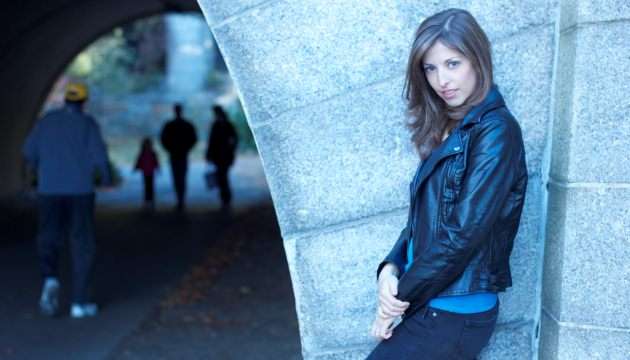When I was 7 years old, my father had a heart attack. Not one that killed him, thank God. He was rushed to the hospital in time for doctors to clear his blocked artery.
No one was all that surprised. My dad had smoked three packs a day for 30 years—that’s over 650,000 cigarettes—before quitting. Even though he’d stopped long before I was born, the damage to his body increased his risk for another heart attack, especially as he aged.
And therein lies the rub: My dad’s the oldest dad around. He was born in 1933, the same year Hitler came to power. He’s of the same generation of most of my friends’ grandparents.
I wasn’t too aware of this as a kid, but after his heart attack, that changed quickly. Suddenly, I came to understand that he was vulnerable in a way the younger dads weren’t. Since he was incredibly active—playing tennis, traveling, working full-time—it was a shock to learn that inside his chest was a bomb waiting to explode. I remember being warned that in the coming years, he might suffer another coronary that could strike without warning. And the next time he might not be so lucky.
I tried to push this knowledge to the back of my mind, but the worry lingered as I entered adolescence: Would he be there for my high school graduation? By then he’d be 70. What about my college graduation (when he would be 74)? Or my wedding (when he would be…who knew)?
But throughout those years, I also realized there was an upside to having an older dad. He tended to be a lot more laissez-faire about raising me than the younger helicopter parents of my friends. He encouraged my independence, trusting me at times even before I trusted myself.
Case in point: When I went to sleep-away camp for the first time, at age 12, I thought I craved the adult freedom of running my own life. I especially craved my very first kiss. But when I finally got it—on a staircase, in the dark, from a sloppy 13-year-old trumpet player—I freaked out. I called my dad the next day and told him I wanted to come home. I wasn’t ready to be a grown-up after all.
Instead of coming to pick me up, though, he told me to stay. Be bold, he said. Persist through the discomfort. Afterward, he mailed me a letter that read, “I’m proud of you for staying at camp and figuring out how to cope on your own.”
I’ve kept it ever since. Thanks to his wisdom through the years, I’ve learned how to take risks, tolerate uncertainty, and take advantage of my time on Earth, because none of us knows when ours might run out.
In my latest thriller, No Time to Die (Kensington Publishing, September 2), the protagonist is a young woman trapped in the body of a 14-year-old. Because of a mysterious genetic defect, she literally cannot age, yet all she wants is to grow up. At the same time, she stands by helplessly as her beloved grandfather grows older and frailer every day. She launches a dangerous quest to see if she can find scientists who can tap into her body’s secrets and figure out a way to control human aging—something that’s not necessarily far off. According to leading researchers, the scientific fountain of youth will be discovered within the next century.
But until that long-sought-after secret is found, all we can do is make the most of our days. For me, each one is lucky because my dad’s still going strong. At 80 years old, his social calendar is more packed than mine. He’s still teaching, traveling, and conquering new challenges, like jazz piano.
He’s been at my graduations. Two years ago, looking handsome in a dapper brown suit, he walked me down the aisle at my wedding. And at a recent checkup, his cardiologist said his heart had actually grown new blood vessels to compensate for the old blocked ones.
“Your heart managed to adapt,” the doctor told him, “so now it’s thriving.”[giveaway giveaway_id=1607 side=”right”]
When he called to tell me, I smiled. It was the perfect metaphor.
Enter to win an exclusive advance reading copy of NO TIME TO DIE
Kira Peikoff is a journalism graduate of New York University who has written for The New York Times, Slate.com, Cosmpolitan.com, Psychology Today, The Daily News, The Orange County Register, Newsday and New York magazine on a wide range of subjects. She published her first book, Living Proof, in 2012 and has worked in the editorial departments of New York publishing houses. She is currently at work on her third thriller, freelancing for major media outlets and attending Columbia University’s Master of Science program in Bioethics.





Such a wonderful dad… emotional, inspiring for me. And I like it when I have a sense of the inspiration behind the stories I watch or read. Thanks for sharing
Very touching article! Thank you for sharing this. I’ve admired your father’s work all my life, and he should be very proud of you as his daughter. I greatly enjoyed your first book and I am looking forward to the next! And what an impressive life you are putting together for yourself!
Thanks guys! I appreciate the kind words. :)